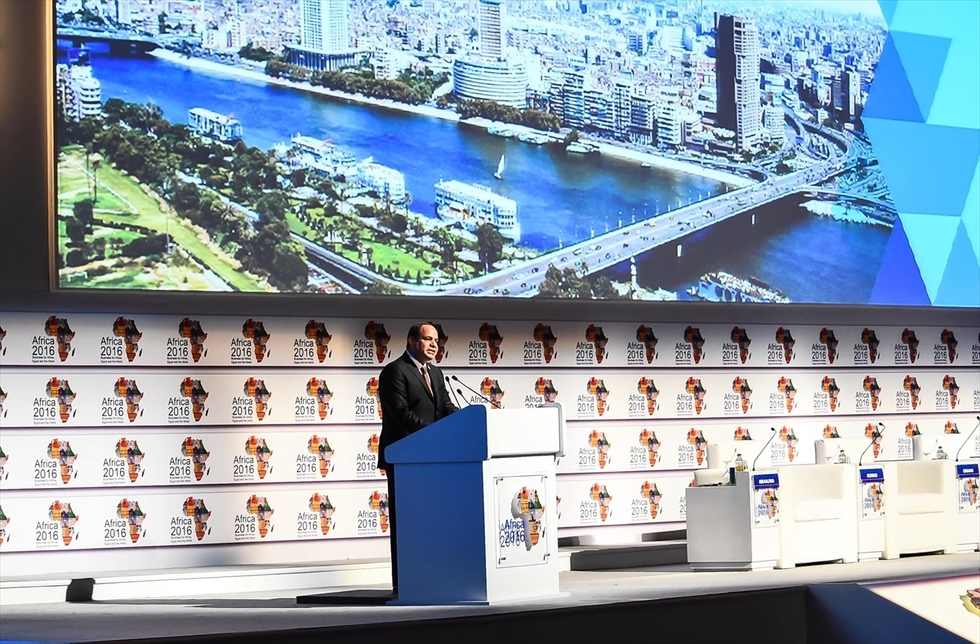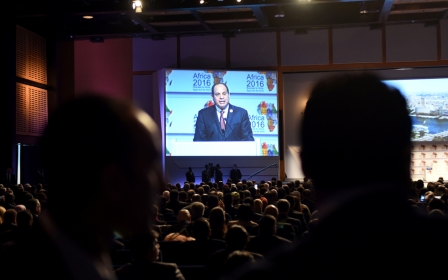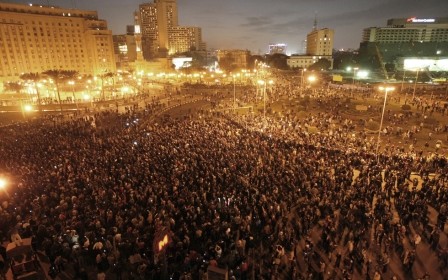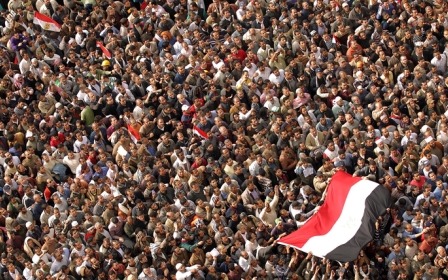Is the Egyptian media starting to hold Sisi to account?

A large body of media research suggests that media systems inevitably reflect the larger sociopolitical systems in which they are situated. Thus, democratic political systems tend to produce relatively free press institutions that serve the public interest, while authoritarian political systems produce news outlets that serve the interests of the state.
Egypt has operated as either an authoritarian or quasi-authoritarian state since 1952, and it is not surprising that the nation’s news media have, for most of the past 60 years, tended to avoid coverage that is overly critical of the government.
This has certainly been the case since Egypt’s July 2013 military takeover, which both private and state-owned media passionately supported.
Since the 2013 coup, Egyptian news outlets have mostly served as pro-government propaganda tools, supporting the government right through its worst human rights violations.
It may come as a surprise, then, that some Egyptian news coverage has started to take jabs at the government, including, at times, current President Abdel Fattah al-Sisi.
For instance, while not mentioning Sisi by name, Al-Hayat Network anchor Amy Al-Laithy delivered a passionate anti-government rant, calling government officials “blind”, “failures”, and “oppressors”. Cairo Today show host Amr Adeeb warned that if Sisi doesn’t rein in police brutality, he could be removed from power just as former dictator Hosni Mubarak was ousted in a 2011 uprising.
OnTv television presenter Youssef Al-Husseini criticised recent violations by Egypt’s security forces and, in another episode, said that some Egyptians have already come to realise that Sisi is not as they “had imagined him to be”.
Perhaps most strikingly, journalist Ibrahim Issa wrote a scathing op-ed about the state of freedoms in Sisi’s Egypt. Issa wrote, “Sisi’s religious state imprisons writers… Under [Sisi’s] leadership, the nation has gone back to a time when the conscience was interrogated, the human mind was put on trial, and the creative writer was jailed.”
Scholars have written at length about Egypt’s current quasi-authoritarian structure. How, then, can recent media attacks be understood?
Explaining media attacks
Media personalities are beginning to hold Sisi’s government to account because government repression has started to hit closer to home.
Most mainstream Egyptian media personalities are passionately anti-Islamist, and openly supported the 2013 coup that removed Islamist president Mohamed Morsi from office. For nearly three years, Egyptian journalists have been silent about human rights violations against Morsi’s Islamist supporters. At times, Egyptian media have openly supported mass killings, irregular trials and other transgressions.
However, in recent weeks, the Sisi government has committed transgressions against non-Islamists, with whom Egyptian media personalities relate. Several prominent writers have been given jail sentences, the judiciary sentenced a toddler to life in prison, an Italian graduate student was tortured to death (most likely by Egyptian security forces), and doctors were roughed up by Egyptian police, among other disturbing violations.
These violations have been too obvious, outrageous, and close to home for Egyptian journalists to ignore - especially given overwhelmingly critical international press coverage of these events.
Another reason why media coverage has become more critical relates to the Muslim Brotherhood, from which Morsi hailed. For two years following the coup, both the Egyptian government and its obsequious media apparatus scapegoated the Brotherhood, blaming the group for myriad problems, including floods, power outages, and violence committed by ISIS.
Given the time that has elapsed since the coup, and also the fact that the first several tiers of Brotherhood leadership are in jail, it is no longer plausible to blame the Brotherhood for many of the nation’s problems. As a natural course, Egyptians, including media figures, are beginning to turn their attention away from the Brotherhood and toward the government.
Also, and importantly, Egypt’s political system is not, and has not been, absolutely authoritarian. In quasi-authoritarian states, journalists are often allotted some room to manoeuvre. Even under the Mubarak dictatorship, occasional criticism of the government was allowed, provided that certain “red lines” were not crossed.
Government push back
To this point, journalists have not crossed the most serious of Egypt’s “red lines”. It remains highly unlikely, for instance, that journalists will attempt to critically examine the Egyptian military’s role in politics, or suggest that police should be held accountable for atrocities committed against the Muslim Brotherhood.
It must be noted, too, that the Sisi government is pushing back against the recent wave of criticism. In addition to the aforementioned arrests of writers, the government has arrested dozens of Facebook page administrators and, most recently, placed investigative journalist Hossam Bahgat on a no-fly list.
Most tellingly, perhaps, Sisi used his Wednesday speech to go after critical journalists. In a reference to anti-government media coverage, Sisi condemned what he sees as attempts to bring down the government, saying he will “remove from the face of the earth” anyone who attempts to do so. In a direct reference to critical news coverage, Sisi instructed Egyptians to listen only to him, and avoid those who attack the government. Sisi shouted, “Please, do not listen to anyone but me! I am dead serious! Do not listen to anyone but me!”
It remains to be seen whether journalists will scale back their criticisms out of fear, or step up their criticism out of defiance. Sisi may have mismanaged much about the country he took over in 2013, but he is undoubtedly aware that dissent, opposition, and critical media coverage helped bring down his predecessors.
- Dr Mohamad Elmasry is an Assistant Professor in the Department of Communications at the University of North Alabama.
The views expressed in this article belong to the author and do not necessarily reflect the editorial policy of Middle East Eye.
Photo: Egyptian President Abdel Fattah al-Sisi delivers a speech during African Forum 2016 in Sharm el Sheik, Egypt on 20 February, 2016 (AA).
New MEE newsletter: Jerusalem Dispatch
Sign up to get the latest insights and analysis on Israel-Palestine, alongside Turkey Unpacked and other MEE newsletters
Middle East Eye delivers independent and unrivalled coverage and analysis of the Middle East, North Africa and beyond. To learn more about republishing this content and the associated fees, please fill out this form. More about MEE can be found here.





